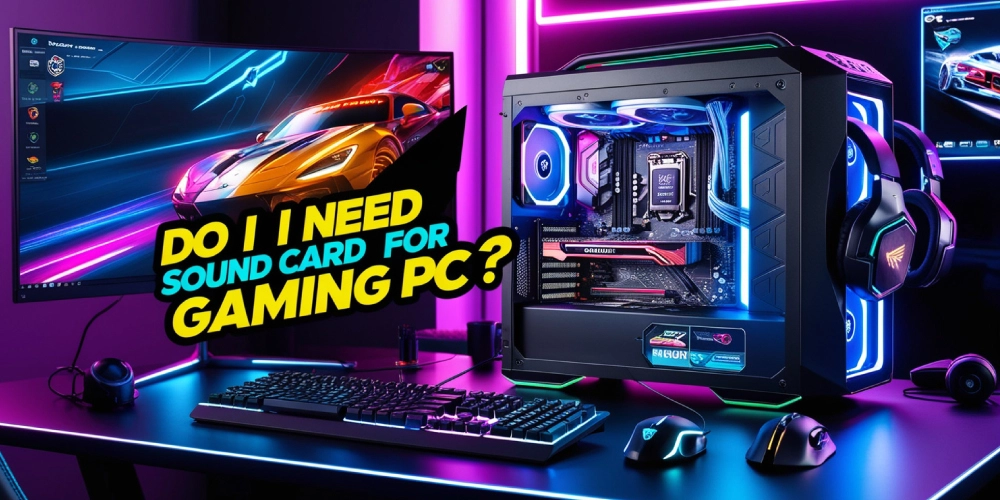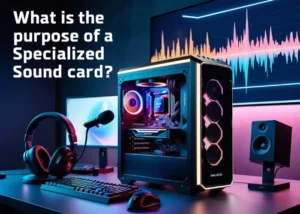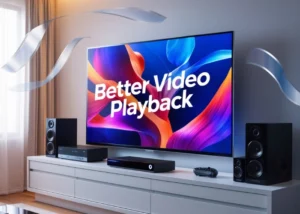If you’re new to building gaming PCs or you haven’t purchased a new PC in a while, you may have seen sound cards and wondered if you really needed them. Well, the answer isn’t, and it is only sometimes valid for the majority of gaming PCs. Over the last ten years or so, technology has advanced significantly, and current PCs have excellent audio quality integrated into the motherboard. Although sound cards will enhance your PC’s audio experience, whether you need one or not will always depend on your needs and the purpose of the computer. Let’s talk about whether I need a sound card for a gaming pc.
Do you need help with your sound?
Sound cards may provide the solution. By protecting internal parts and isolating you from noisy parts of your PC, a sound card improves sound quality. Keep in mind that having a sound card will allow you to enjoy optimal sound quality if you have numerous FLAC or lossless audio files, but your current setup doesn’t-only will enable them to play back at their total sample rate or bit depth. Sometimes, very cheap computers don’t include audio output capabilities or have subpar sound cards; therefore, an external DAC and amplifier may be necessary.
What Is a Sound Card?
A sound card is an internal or external hardware part used to measure audio signals from digital information conversion into analog output for speakers or headphones. Thither get work sacred go card game installed singly arsenic good arsenic organic ones organic flat onto motherboards. Modern motherboards often include Combined audio chips capable of producing decent sound quality; however, dedicated sound cards are frequently touted as offering higher audio quality, richer sound effects, and additional Characteristics like surround sound support.
Does my motherboard sound good enough for games?
The sound on your computer’s motherboard used to be better than sound cards. Sound cards had better audio processing and more customization choices so that you could make the sound settings sound a certain way. Still, thanks to progress in technology, motherboards now have some really great sound components built in. In many cases, their software-based sound processing is just as good as high-end add-on cards. To sum up, no, you don’t need a sound card to enjoy great sound in games.
Things to Think About When Picking Out a Sound Card
When picking a sound card for gaming, you should think about how well it works with your system, how good the sound is, what features and customization choices it has, and how much money you have to spend.
What Is the Purpose of a Specialized Sound Card?
Sound cards are specifically tailored to achieve one purpose. For maximum effectiveness, audio signals should be processed to minimize electrical audio interference (noise) and increase overall sound quality. Electrical components and computer load cause interference that negatively impacts all built-in sound cards. Sound cards with dedicated audio drivers are designed to remove interference and maintain audio quality, whether entering through microphones or leaving speakers, headphones, or both. Over time, this may be beneficial to some while less so to others.
Fitting Together
Compatibility should always be at the forefront of mind when purchasing a sound card for gaming. Be sure to select an option compatible with the equipment already present on your motherboard or device for a seamless gaming experience. USB sound cards must work effectively with whatever device they’re connected to so as to improve audio quality, making the music streaming experience seamless and better overall. Some motherboards include built-in sound cards, so purchasing additional ones may be optional. Bear in thoughts that PCs and capsules walking Windows 10 may also require external sound playing cards with the purpose of maximizing audio functions, so before making your selection, it’s miles beneficial to confirm its compatibility along with your setup with the aid of acting compatibility testing.
Sound Quality
When selecting a suitable card for gaming, song quality must be an integral consideration. Different sound playing cards feature vastly differing sound qualities that could alter how much fun you have during games. If you enjoy video games that combine music with their recording capability, having a legitimate card that provides high recording quality is vital in creating higher and more professional-sounding recordings.
On the other hand, noise-emitting sound cards decrease the quality of the music output and further inhibit you from having the full effect of your game experience.Therefore, you should get a sound card that emits clear audio while minimizing noise and distortion.
Some essential items include:
- Audio Quality:
For an enjoyable game experience, a quality sound card should produce clear and distinct audio that feels real and immersive.
- Support for Surround Sound:
Some sound cards support 5.1 or even higher surround sound setups, which can make gaming experiences more immersive. Hearing sounds coming from various directions helps players track what is going on within games more accurately.
- Analog-to-Digital Conversion:
Sound cards can convert audio data from analog to digital and vice versa, so finding one with high-quality conversion will ensure that sound plays back correctly.
- Connectivity via USB:
USB sound cards are versatile and valuable devices that make connecting to various devices effortlessly. Many feature high-tech features like surround sound simulation, adjustable EQ settings, and microphone improvements for better user experiences.
- Improvements for games:
Some sound cards offer features specifically designed to enhance gaming performance, such as 3D audio processing and voice chat optimization features, as well as settings designed to make sound better suited to different genres of gameplay.
- Better Video Playback:
If you enjoy watching movies or videos on your PC, be sure to invest in a sound card that enhances video playback – noise reduction, dynamic range compensation, and bass control are among many features that can improve multimedia experiences significantly.
Budget Issues:
When shopping for sound cards for gaming, price should be the primary concern. Look for one that meets both your wants and budget needs.
Consider whether or not your sound card will work seamlessly with your computer and game accessories. Including sound quality preferences, as well as any customization features or options that might interest you.
Be mindful that USB sound cards are popular choices due to their ease of use and compatibility with various devices. Also, consider what your warranty covers before making your choice.
Conclusion:
Do I need a sound card for a gaming pc?- It comes down to a personal decision whether or not a sound card is worth the money. For casual gamers or those who don’t only care a little about sound quality, onboard audio is more than sufficient. This, however, can be well worth the investment for serious gamers and audiophiles alike to get the best audio possible.



